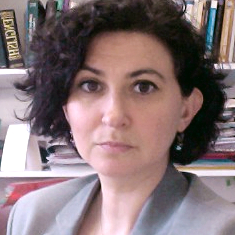What is AI in Education and How can it be Harnessed in Service of Front-line Education?
Abstract
The recent pandemic has caused a substantial shift in the public mindset regarding the potential and the feasibility of technology use in supporting educational practices globally and across different educational levels. Artificial Intelligence in Education (AIED) has been in existence as a field of research for over 40 years. Despite this, it is only recently that the AI technologies have become a tangible proposition for the front line of education. However, although there is now increased readiness of learners, educational practitioners, school administrators and other stakeholders, such as policy makers, to embrace the new learning support tools offered by the AIED field, the understanding of what AI is, and how it may help or hinder best learning and teaching practices, remains confined to the specialist circles of academic experts. In this talk, I will define Artificial Intelligence and explain how it is conceived of as a tool for supporting learning and teaching. I will discuss the aspirations for the field along with ethical considerations which necessitate reflections and appropriate action if we are to advance our vision of education as a socially beneficent service and a basic human right with the help of AI technologies.
Short Bio
Kaśka Porayska-Pomsta is Professor of Artificial Intelligence in Education at the University College London, IOE UCL’s Faculty of Education and Society, UCL Knowledge Lab. Her research and practice aim to strike a balance between the needs of learners and practitioners in real world educational contexts and the design and engineering constraints related to creating and deploying Intelligent Learning Environments in the wild. Diversity, inclusion and trustworthy Artificial Intelligence in Education represent key themes throughout her research. She has substantial experience of working with diverse learners, including young children, and designing and evaluating AI technologies to support their learning and development. As a member of the management committee for the Bloomsbury Centre for Educational Neuroscience, the executive committee for the International Society for Artificial Intelligence in Education, and steering committee for the UCL/Wellcome Trust Translational Partnership, she offers interdisciplinary insights that leverage engineering, learning sciences and human cognition, along with the ethics of AI in education dimensions.


